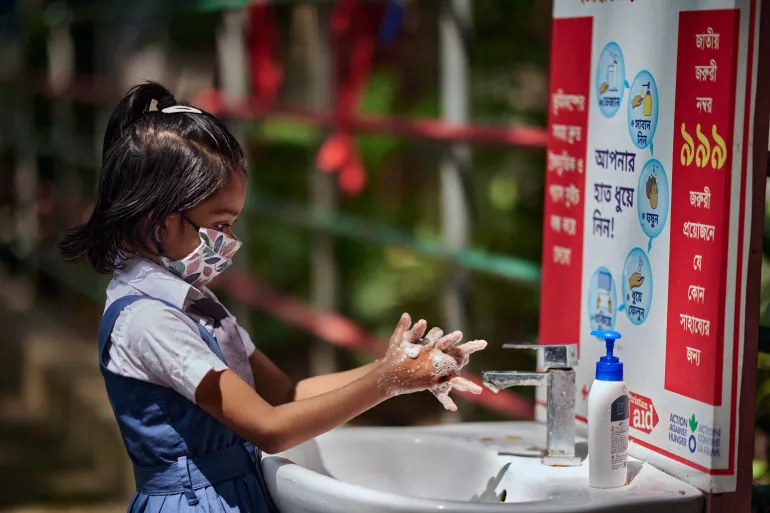Staff Correspondent
Published:2025-07-04 23:38:56 BdST
BD risks missing safe sanitation target due to inaction
Bangladesh risks missing its 2030 target for safely managed sanitation due to the absence of effective oversight and implementation of the National Action Plan (NAP) 2019-2030 for Faecal Sludge Management (FSM).
Despite ambitious goals under the Sustainable Development Goal (SDG) 6.2, no government agency is currently monitoring the progress of the NAP or coordinating efforts across rural areas, municipalities and cities.
The NAP, developed by the Policy Support Branch under the Local Government Division (LGD) with support from UNICEF, outlined a decentralised sanitation strategy involving faecal sludge treatment plants, twin-pit latrines, septic tank coverage, vacuum tankers for safe waste transport and private sector engagement in sludge collection and transport.
However, implementation remains fragmented. While various agencies, including city corporations, Dhaka Water Supply and Sewerage Authority (DWASA), the Department of Public Health Engineering (DPHE) and the Local Government Engineering Department (LGED), are undertaking projects, there is no central mechanism to track progress, evaluate outcomes or adjust strategies.
When contacted, the Citywide Inclusive Sanitation-FSM Support Cell declined to provide progress updates and redirected queries to the LGD’s Policy Support Branch.
DPHE Superintending Engineer Shafiqul Hassan, co-chair of the FSM cell, acknowledged the lack of coordination.
He said DPHE is implementing the plan in rural areas and municipalities through five projects, bringing at least 50 municipalities under FSM coverage so far.
“More projects are in the pipeline, but there is no central body to analyse the data or track implementation,” he said.
Swe Min Zaw, deputy secretary of the Policy Support Branch, admitted that the branch is unable to monitor the plan due to staff shortages.
“The NAP was mainly developed by UNICEF and since the branch’s inception in 2017, only two government officers have been posted here. We simply do not have the capacity to collect and review large volumes of implementation data,” he told the Daily Sun.
A DPHE executive engineer, requesting anonymity, said, “The FSM issues are neglected. The LGD is more focused on project spending than on monitoring policies or long-term plans.”
Md Mahmudul Hasan, director general of the Monitoring, Inspection, and Evaluation Wing of LGD, confirmed that progress tracking is inconsistent.
“We do not compile a detailed national report. Coordination happens at the city corporation level. If you give us time, we can try to assess the progress,” he said. “Outside of major cities, implementation is largely neglected.”
Sector experts are sounding the alarm, warning that time is running out. With less than five and a half years left to meet the SDG sanitation target, progress must accelerate significantly.
Partha Hefaz Shaikh, director of Programme and Policy Advocacy at WaterAid Bangladesh, said, “At this pace, the government may fall short of achieving safely managed sanitation by 2030. The NAP must be reviewed immediately. Budget allocation is one part, but timely and quality implementation is equally critical.”
He also warned that poor sanitation could lead to a surge in waterborne diseases. “Unsafe human waste disposal pollutes surface and groundwater. Sanitation must be prioritised.”
While the government has expressed a positive outlook toward FSM, experts say increased funding, political will and a coordinated review mechanism are essential to stay on track for the 2030 goal of 90% hygienic sanitation coverage nationwide.
Unauthorized use or reproduction of The Finance Today content for commercial purposes is strictly prohibited.


